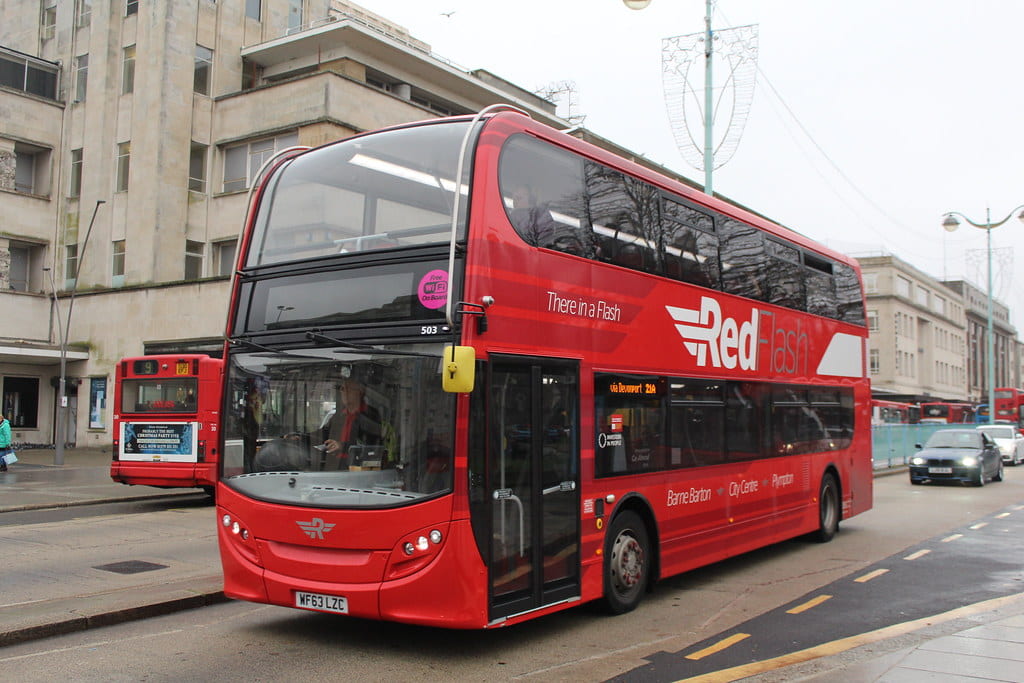
Plymouth Marjon University has been criticized by its students for its lack of support for students hoping to reach the town centre. They feel it’s impacting their mental wellbeing and the distance of the university from Plymouth’s high streets is being ignored by the educational institute.
The City of Plymouth is renowned for its student orientated layout, with both Plymouth University and the College of Arts being in prime locations inside the city centre, resulting in a great balance between social and working life for those that choose to live on campus. However, Plymouth Marjon finds itself isolated from this circle by its immensely different location.
This drastic difference is most noticeable in the contrasting travel times from Marjon and Plymouth University to the three most recommended locations to party and socialise for students. Switch, Wetherspoons and Pryzm, which are some of the most talked about spots when it comes to meeting and hanging out with friends.
Switch can be found only six minutes away from Plymouth University on foot while Marjon students face an inconvenient 30-minute bus journey to find the party.
Pryzm is no better with a staggering 56-minute journey spread across two busses for Marjon undergraduates and a 20-minute walk for those living at Plymouth University
Most shocking of all, Wetherspoons, undoubtably the most popular place for young people to meet with friends, is a shocking 40-minute bus journey from the Marjon campus and only a 14-minute walk for Plymouth University academics.
Alternatively, students can book a taxi to and from the Marjon campus to save time and the inconvenience of waiting in the cold for a bus or worrying about the city bus’s timetables, but this will set them back £15 raising the total cost of a student night out from £60 to a whopping £90.
Worryingly, there is only one taxi service ‘Need-a-Cab’ that runs any sort of student support scheme in Plymouth. They charge the bill to student services and then allow students to negotiate with the University to clear their debt at a more suitable time to ensure that students get home safe but also pay their way. While this sounds useful especially to Marjon residents, the scheme is mainly tied to Plymouth University and is only promoted in association with them, this raises queries about whether the scheme is even available within Marjon.
The lack of efficient and cheap transport into the City’s partying paradise raises questions about student loneliness and how it is fed by the inability to meet new people without a meticulous plan beforehand.
Student Alicia Jasper has resorted, like many of her peers, to stay on campus to socialise and drink, she said: ‘It’s a struggle to connect with new people when you don’t go into town. Yes, the public transport is an option but it’s difficult to have fun when you have to be so focused on not missing your bus.’
Studies report that 1 in 4 students say they always or mostly feel lonely when living on campus in the UK and while Marjon’s student support is rated highly compared to others in the county, this issue hinders student happiness and provides the residents of its halls with a tough choice to either sacrifice a crucial aspect of university life or brave the financial and geographical troubles of navigating Plymouth.
Alicia believes this loneliness that could be troubling Marjon undergraduates is partially caused by the difficulties that freshers face getting into the city centre where a lot of friends are made throughout the years.
‘If people can’t afford to get a taxi into town and have just moved from another city there’s no convenient way for them to bond with everyone and that can make you feel like an outcast.’
Alicia also said: ‘pre-drinking has become the new clubbing, its way cheaper because there’s no travel costs and you know there are loads of people doing it, so it doesn’t feel unusual, but we never really mix groups.’
It is an unfortunate tragedy that students at Marjon cannot conveniently access the facilities that were built for them as an escape from stress and a hub for forging new friendships but hopefully they will see more student schemes and support brought in to ease the troubles of those that are missing out on the fun.
